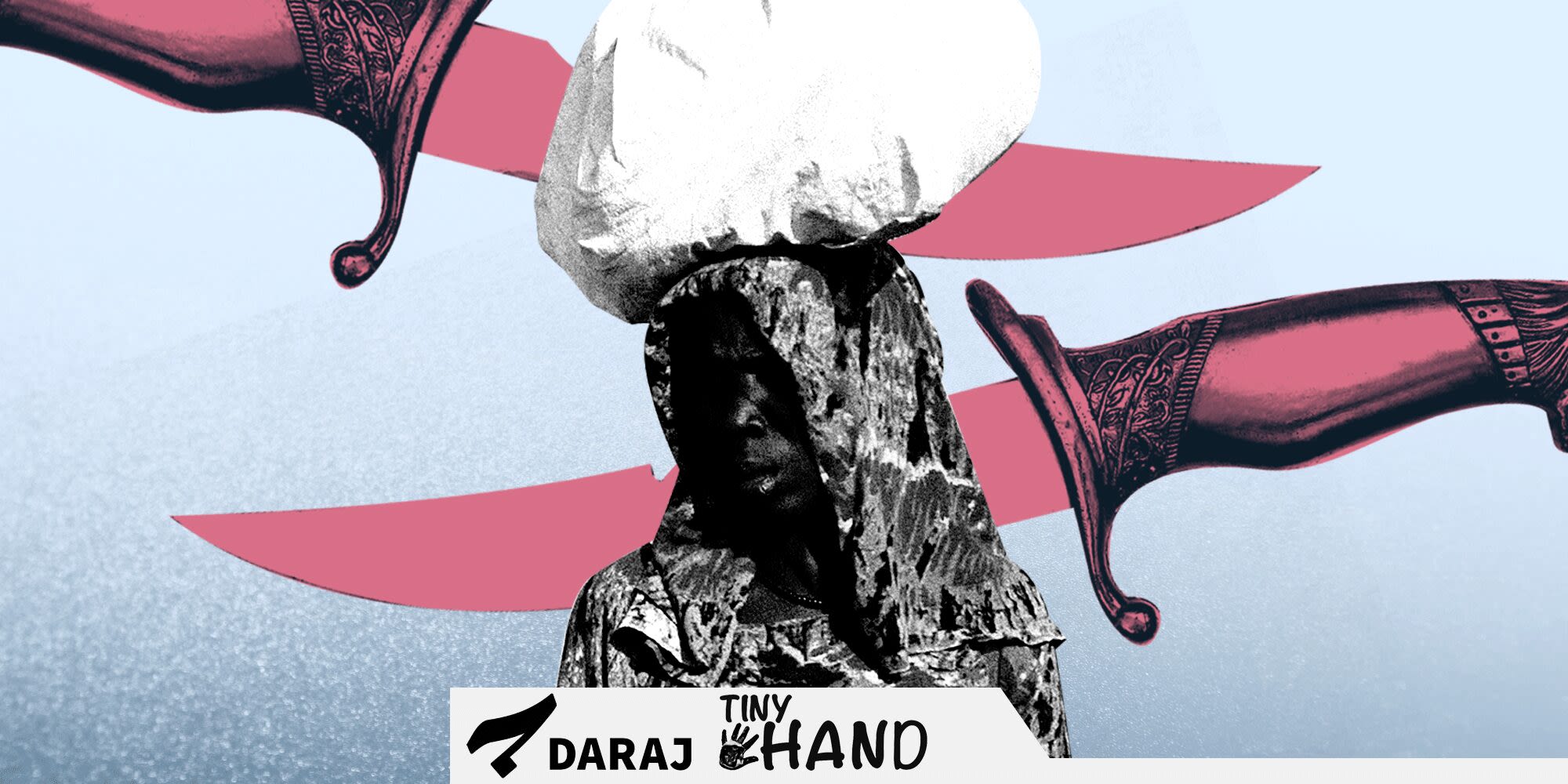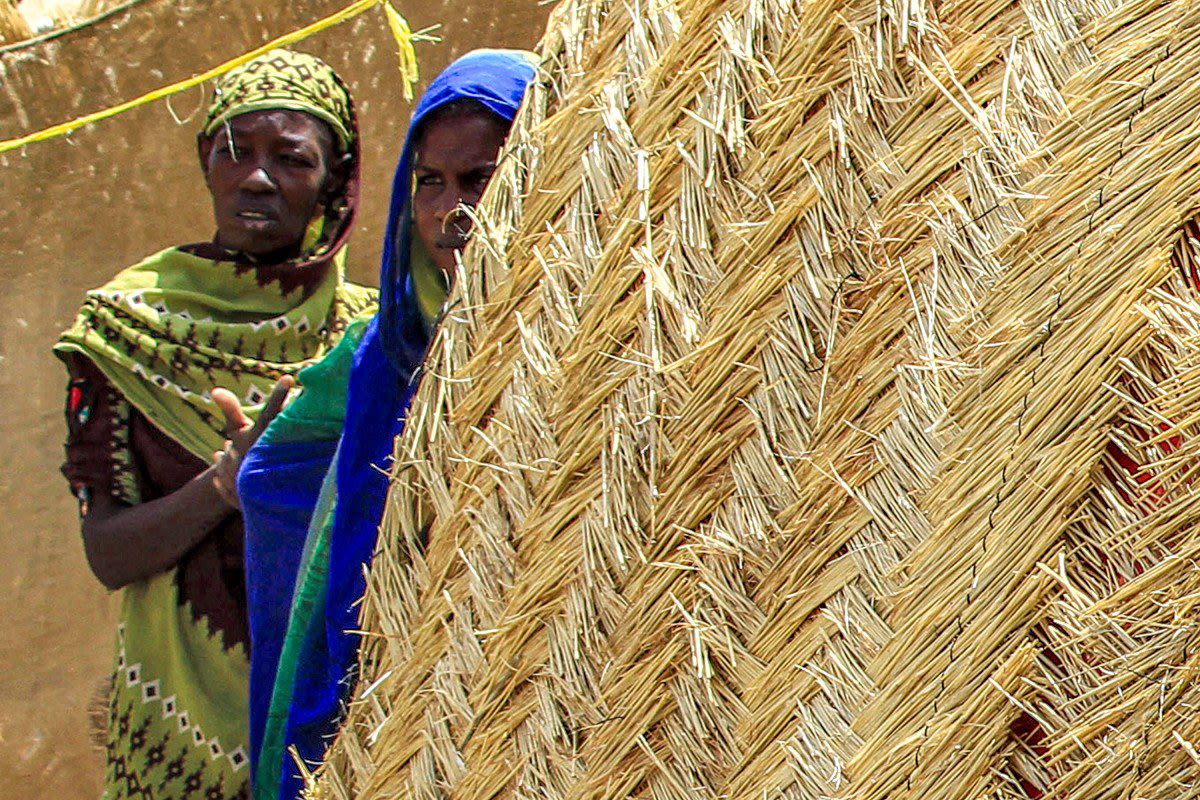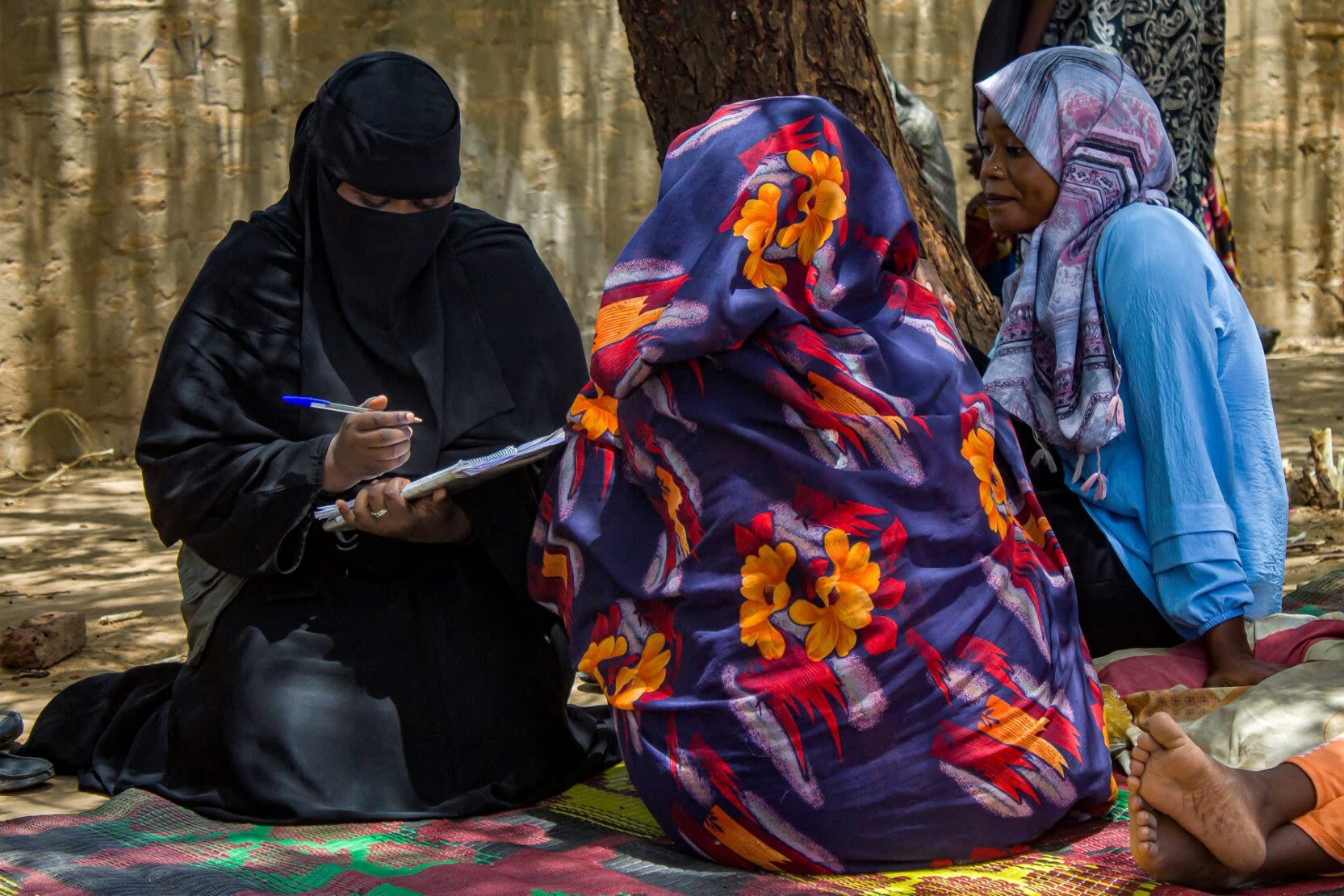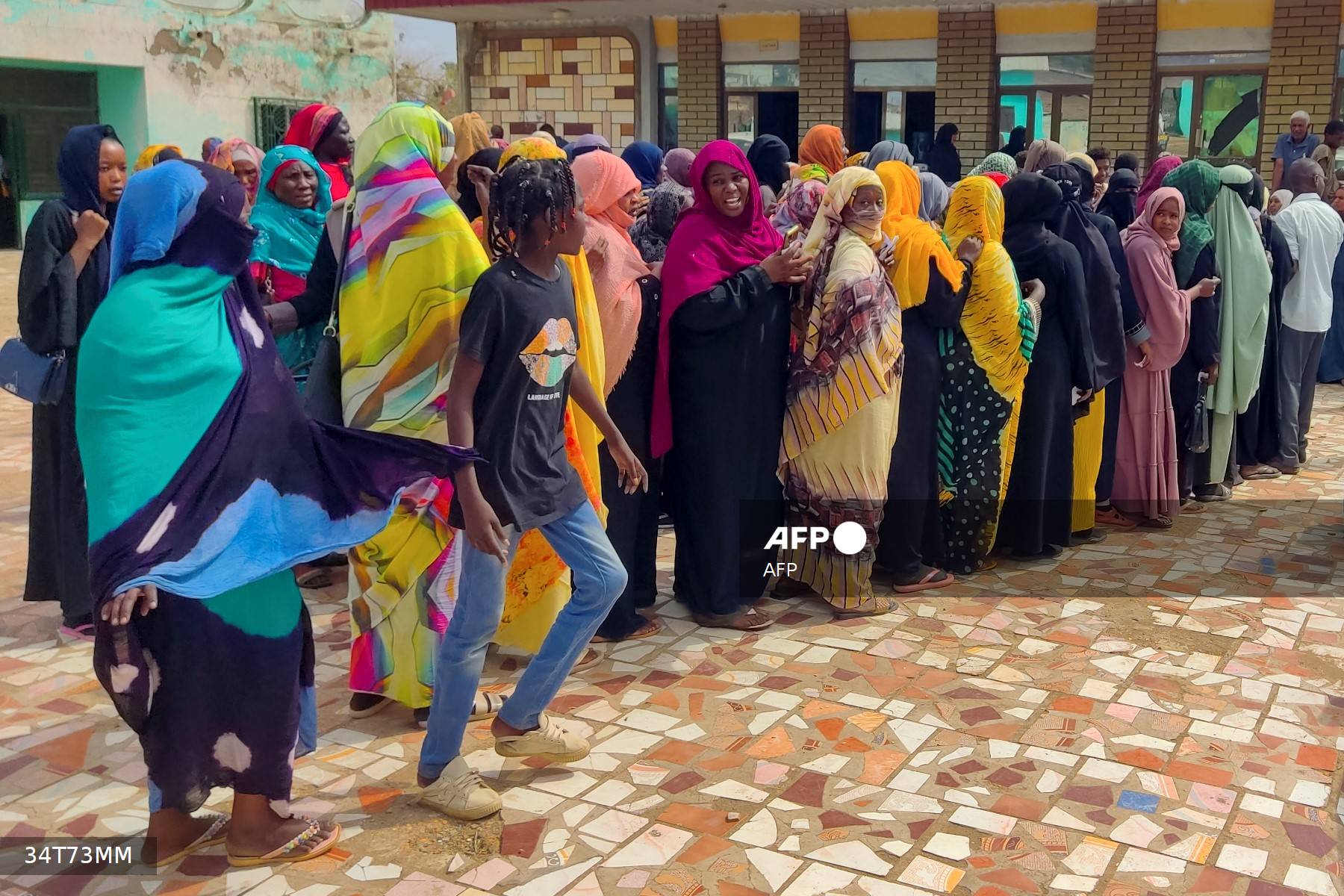Knives Beneath the Pillows: "We Either Commit Suicide or Kill Them"
About the Women and Children of Sudan

After more than a year since the war in Sudan began, the plight of Sudanese people becomes increasingly evident day by day, especially with human rights reports documenting systematic violence and sexual assaults against women and girls.
A bullet piercing through her home made the decision final. Despite postponing her departure for six months since the conflict erupted in Sudan on April 15, 2023, between the Sudanese army and the Rapid Support Forces, she could no longer delay.
It's time to pack a small bag and leave the home where she lived her entire life. Balsam Abdul Rahman (30 years old) from Omdurman in Khartoum state, Sudan, finds herself caught in a harsh displacement journey for the past six months.
The bullet did not harm anyone. Balsam, along with her two sisters and their mother, survived. Yet stray bullets were not their biggest concern. The four women sleep daily with knives hidden under their pillows. In case members of the Rapid Support Forces invade their home, these knives will be used either to kill the intruders or themselves. "We will not accept being raped. We will kill them or kill ourselves before that," Balsam tells us.
This situation is not unique to them but applies to many others like them who are almost inseparable from their knives, "to defend themselves in cases of necessity," as Balsam explains.

The journey began in the area of Karari in Omdurman
The locality of Karari, where Balsam's house is located, remains one of the last safe areas for residents of the Sudanese capital. This is because elements of the Rapid Support Forces have been unable to infiltrate it due to the presence of Sudanese army bases, such as the Wadi Seidna base.
However, these military bases have turned their lives into a "nightmare," according to Balsam. While they prevent the Rapid Support Forces from entering the area, they have transformed their lives into a living hell.
One September morning in 2023, six months after the outbreak of war in Sudan, Balsam and her family fled their home. While many chose to leave the capital for safer states, others fled to the Karari area, which covers an area of no more than 3900 square kilometers and saw its population double to nearly one million people.
With one million people living in this area, approximately 265 people per square kilometer endure constant power outages, stray bullets targeting their homes, and the incessant sound of artillery fire. If not directly targeted, the artillery shells shake their homes and crack their walls.
Most importantly, they live in constant fear of the Rapid Support Forces invading the area, especially after tightening control over most areas of the capital, Khartoum. This terrorizes Balsam and her family, especially amidst rumors of rape, bodies strewn in the streets of Khartoum.
Today, there is a huge number of internally displaced persons (IDPs) due to conflicts in Sudan, totaling 10.7 million people, with nine million displaced within the country and 1.7 million fleeing violence to neighboring countries.
According to a previous statement by IOM Director General Amy Pope, "As of today, one in every eight internally displaced persons in the world is in Sudan."

Among them are Balsam and her small and large family...
The displacement here from one area to another has conditions for survival, the most important of which, according to Balsam, is "that a group of women should not travel alone, for fear of being raped," so her mother chose to flee with her husband's family, they were 4 families," Balsam explains to us, "we chose to leave with the large family so that we could protect each other."
Balsam herself considers herself luckier than many who fled their homes hastily, without being given the opportunity to gather their identity papers, something she managed to do; she gathered official documents and a few clothes.
Balsam closed the door of her house, left... took a few steps, glanced back at her house again, muttered to herself with words promising her return soon, despite almost realizing that it wouldn't happen, and as days passed, her certainty of achieving that grew more difficult, especially after receiving later information that their house had been completely looted "even the tiles were smashed," she tells us.
Distances between cities during times of war multiply, and mobility, which was easy and taken for granted during peacetime, becomes nearly impossible during conflict, and this is what happened to Balsam and her family, where it took them about 16 hours to reach their destination in Atbara city.
She tells us: "Under normal circumstances, such a journey takes about 5 hours, but due to military checkpoints in each area and indiscriminate shelling, we were delayed on our journey, especially since we later learned that another bus, which was ahead of us, was targeted and everyone in it died."
The hardest part of this displacement journey was finding a home to accommodate Balsam and the large family consisting of about 50 people, especially as homeowners raised rents to astronomical numbers, increasing by tens of times.

Once again, it was a harsh displacement journey that lasted for four days
About three months passed since their arrival in Dinder City. During this time, neighboring cities fell under the control of the Rapid Support Forces, particularly Wad Madani, the second-largest city in Sudan. Wad Madani was not only significant as Sudan's largest food and economic source but also for its central location amidst several states and its proximity to the capital, Khartoum, approximately 200 kilometers away.
With the fall of Wad Madani, Balsam's family felt fear creeping in as danger approached them. It was time to relocate once again.
This time, their journey of displacement took them to a new city, Damazin, which lasted for four days. They carried their belongings and traveled in a large truck known as "daffar" in Sudanese dialect.
However, their harsh journey ended in failure as they couldn't find a home in Damazin. Balsam described the rental prices as "unimaginably high." After spending ten days without finding accommodation, they headed to Atbara City, known for its incomplete informal settlements. Yet, even here, landlords imposed exorbitant rent prices. Their options for choosing a new state became limited due to the ongoing military advances of the Rapid Support Forces.
Eventually, they found a house without doors or windows, consisting of three rooms and one bathroom, where 52 people, including Balsam, would reside. They closed off the openings with crates and plastic wraps and laid sponge mattresses on the earthen floor. Each mattress accommodated two individuals, adding to the difficulty of securing water and electricity.
Their constant shifting between different environments and areas exposed them to diseases such as brucellosis, dengue fever, and Ethiopian malaria. Balsam recounted that they had only heard about these diseases before but unfortunately experienced them firsthand. Many family members suffered from these illnesses.
The widespread prevalence of diseases posed a significant challenge, especially considering that 70% of hospitals in conflict-affected areas and nearly half of the health facilities in the rest of the country were no longer operational. The functioning hospitals were overwhelmed with patients seeking care, many of whom were internally displaced.
Besides health challenges, the soaring prices and lack of jobs compounded the hardships. Balsam's family, comprising 52 individuals, had all ceased their work and employment, with their sole financial support coming from their aunt living in Saudi Arabia.
Concerning the children and education, Balsam highlighted that their situation was dire. Having moved three times, they lost significant weight due to dietary changes and deprivation of essential nutrients. This plight wasn't exclusive to them, as UNICEF reported that over 7.4 million children in Sudan lacked access to safe drinking water and essential necessities for survival and well-being. Additionally, more than 3 million children under the age of five suffered from acute malnutrition, making Sudan one of the countries with the highest rates of malnutrition globally.
Regarding education, Balsam mentioned that they had completely stopped attending school since a year ago. Today, there are 19 million school-age children in Sudan who do not attend school, exacerbating Sudan's educational crisis.
Balsam described the psychological impact on children and adults alike, with her own mental state deteriorating into severe depression. She expressed feeling trapped in a dilemma, unable to separate from her large family and uncertain about their future. The fear of the unknown haunted her, wondering if they would survive and how they would cope with each passing day.
Ultimately, their greatest fear was not just the risk to their lives posed by the Rapid Support Forces but the fear of being stuck in this predicament indefinitely. Balsam's final thoughts reflected this uncertainty, questioning if they would ever make it out of this ordeal alive.
